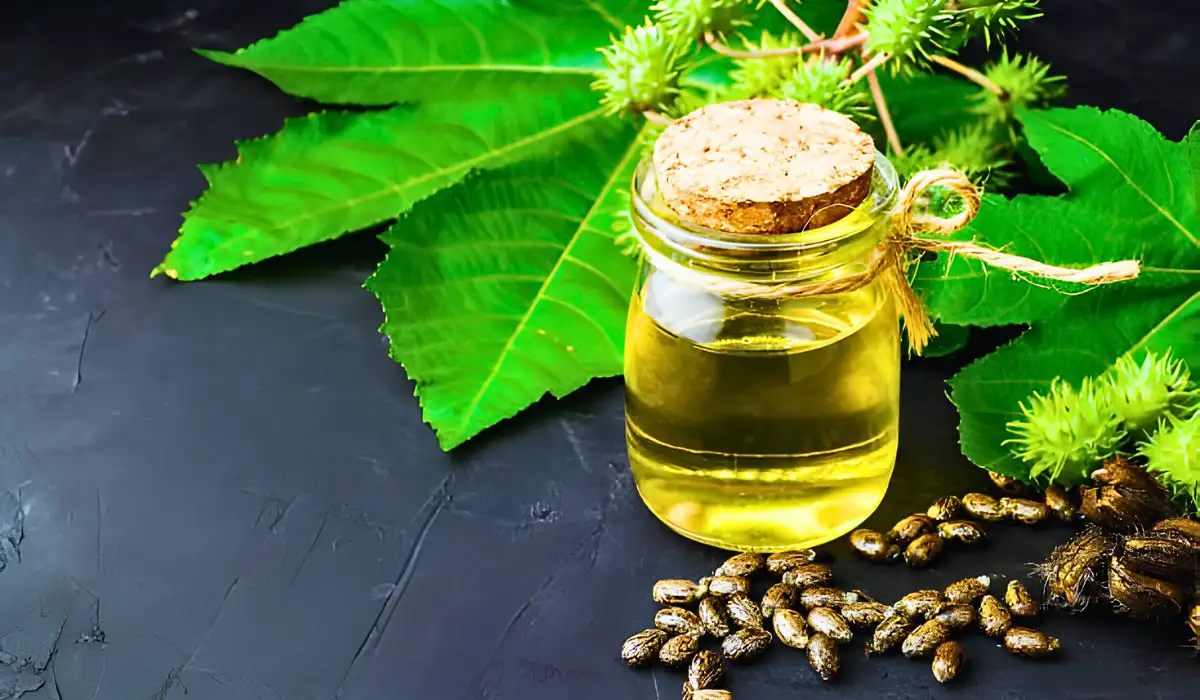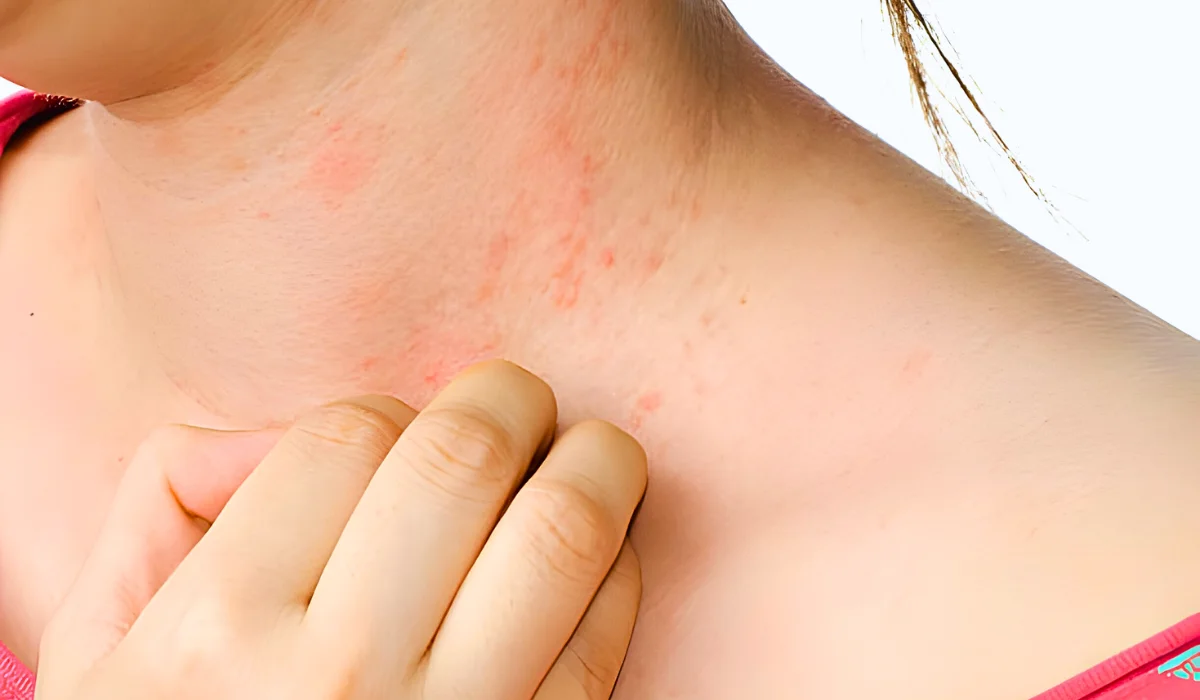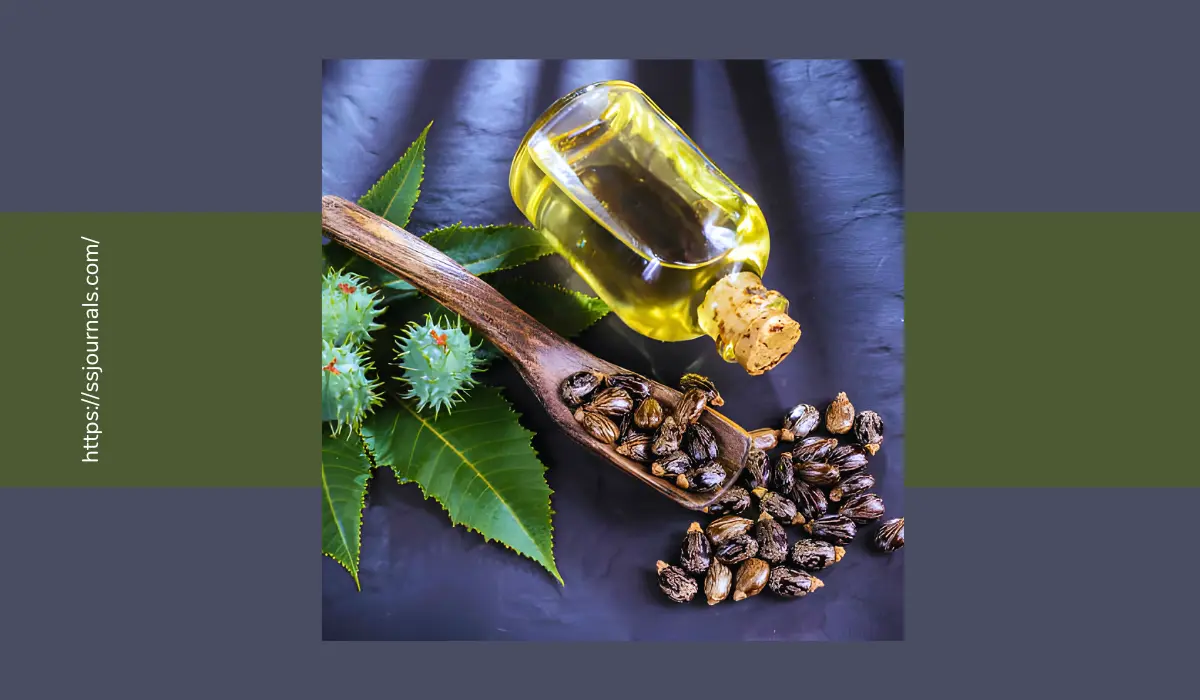Eczema is a common skin condition affecting over 30 million Americans. It’s characterized by extremely irritating patches of inflamed, red, itchy skin. Eczema can occur anywhere on the body but often develops on the hands, feet, inner elbows, back of knees, or the face in children.
It’s usually traced to an overactive immune response that leads to chronic inflammation when triggered. Common eczema triggers include allergens, weather changes, stress, and skin irritants like detergents or perfumes.
Finding an effective way to manage eczema is crucial for minimizing frustrating flare-ups and keeping skin healthy. Treatment focuses both on symptom relief, as well as addressing the underlying inflammation driving outbreaks.
Many medications and ointments aim to control eczema’s inflammation. However, long-term use of steroids and other options has side effects. This has prompted interest in natural alternatives like castor oil. Now let’s take a deeper look into the topic- Castor Oil for Eczema
What is Castor Oil?
The extraction of castor oil involves pressing the seeds of the Ricinus communis plant. It has been used therapeutically for centuries to treat various conditions like constipation to arthritis.

Castor oil is rich in ricinoleic acid which gives it unique healing abilities. It contains unique plant-based compounds that exhibit anti-inflammatory, antimicrobial, and skin-soothing abilities.
Using castor oil is thought to calm inflammatory pathways behind eczema flares. It may also help treat secondary infections that can worsen symptoms. Castor oil’s hydrating effects additionally protect vulnerable skin prone to eczema outbreaks. These combined actions make castor oil an intriguing remedy to possibly help control eczema.
How Can Castor Oil Help Treat Eczema?
There are a few primary ways that castor oil may aid eczema:
- Moisturizing dry skin – Dehydrated skin is more prone to eczema flares. Castor oil is very thick and oily, allowing it to form an occlusive layer on the skin to prevent water loss. This helps hydrate and soothe dry, irritated skin.
- Anti-inflammatory effects – Ricinoleic acid gives castor oil natural anti-inflammatory abilities. Applying it to eczema may calm inflammation, redness, and swelling. The antihistamine effects it provides also reduce pesky itching.
- Antimicrobial properties – Castor oil exhibits antibacterial and antifungal effects. Using it on eczema may protect against secondary infections that further inflame the skin. Its ricinoleic acid blocks the growth and overgrowth of microbes.
Using Castor Oil Safely for Eczema
Castor oil is generally safe to use topically for eczema. However, a small number of people may be allergic to using it. Do a patch test before applying castor oil widely over eczema. Try a dime-size amount on normal skin and watch for any reaction over 24 hours.
Use high-quality, cold-pressed castor oil. Jamaican black castor oil is another variety that has similar beneficial properties. Avoid using castor oil if you have an allergy or sensitivity to it. Seek medical care if you develop hives, swelling, or difficulty breathing after using it.
You can use castor oil undiluted or mix it with a carrier oil or lotion base. Common options to dilute it include coconut oil, olive oil, almond oil, and shea butter. Shake or stir to combine. Start with a lower concentration like a 1:1 ratio if you have very sensitive skin.
How to Apply Castor Oil for Eczema?

Follow these steps to use castor oil for eczema flare-ups:
- Cleanse – Wash eczema patches with a gentle, fragrance-free cleanser and pat dry. Remove any ointments already on the skin as well.
- Apply a thin layer – Dip fingers into the castor oil and gently smooth over affected areas. Using too much can get messy and stain clothing. Reapply 1-2 times per day as needed.
- Use other treatments if desired – You can layer on other eczema remedies over the castor oil if using multiple options. Let each layer fully absorb before adding the next.
- Moisturize after – Lock in moisture by applying your usual fragrance-free moisturizer or cream over the castor oil. This helps seal hydration into the skin long-term.
Castor Oil Eczema Recipes
Castor oil mixes nicely into DIY balms, creams, and ointments specifically tailored for eczema relief. Some examples include:
- Castor oil and shea butter – Whip 3 parts shea butter together with 1 part castor oil. Apply liberally over patches.
- Castor oil and coconut oil – Mix equal parts of each oil. Use on active eczema as often as needed.
- Castor oil oatmeal bath – Add 1⁄4 cup oil and colloidal oatmeal to a warm bath. Soak for 15-20 minutes to soothe widespread eczema. Rinse and pat dry.
- Anti-itch castor oil cream – Whisk 1 egg yolk and stir in 2 tablespoons castor oil, 1 tablespoon honey, and 5 drops of tea tree essential oil. Smooth over skin.
Other Natural Eczema Treatments
While castor oil is beneficial, using it alongside other natural options can boost its effects. Some complementary eczema remedies to try are:
- Colloidal oatmeal – Soothes itchiness and protects irritated skin. Use it in baths or make a paste to apply topically.
- Coconut oil – Another moisturizer that alleviates dryness causing flares. Contains lauric acid to fight infections.
- Honey – Calms inflammation and provides antioxidants. Manuka honey works best but regular honey helps too.
- Aloe vera gel – Extremely soothing and healing for weepy eczema. Apply gel from the leaf directly over the patches.
- Tea tree oil – Reduces inflammation and heals skin due to its antimicrobial effects. Dilute before using directly.
Conclusion
Eczema is notoriously difficult to manage. What works well for one person may not help someone else. Castor oil is an affordable natural option to experiment with. It moisturizes dry skin while fighting inflammation and bacteria. These combined actions combat some primary drivers of eczema flares.
Research on castor oil for eczema is promising but limited. Many people rely on anecdotal evidence and traditional use to support trying it. Using castor oil is generally low risk as long as you test for allergic reactions first. It may be helpful both on its own or with other natural remedies. Customize a treatment plan that keeps your eczema triggers in check. Be patient when self-treating eczema naturally. It can take weeks to months to see a difference.
Avoid common irritants that worsen your flares during this time. Stick to gentle skincare products free of fragrances, dyes, and chemicals. Protect skin from temperature extremes, excessive washing, and scratching.
If your eczema remains poorly controlled with natural remedies, see your dermatologist about prescription treatment options. Achieving long-term remission is possible with diligent skincare and the right mix of therapies. Does using castor oil to treat your or your child’s eczema seem worthwhile to try? What natural remedies have you found helpful to control flare-ups?

